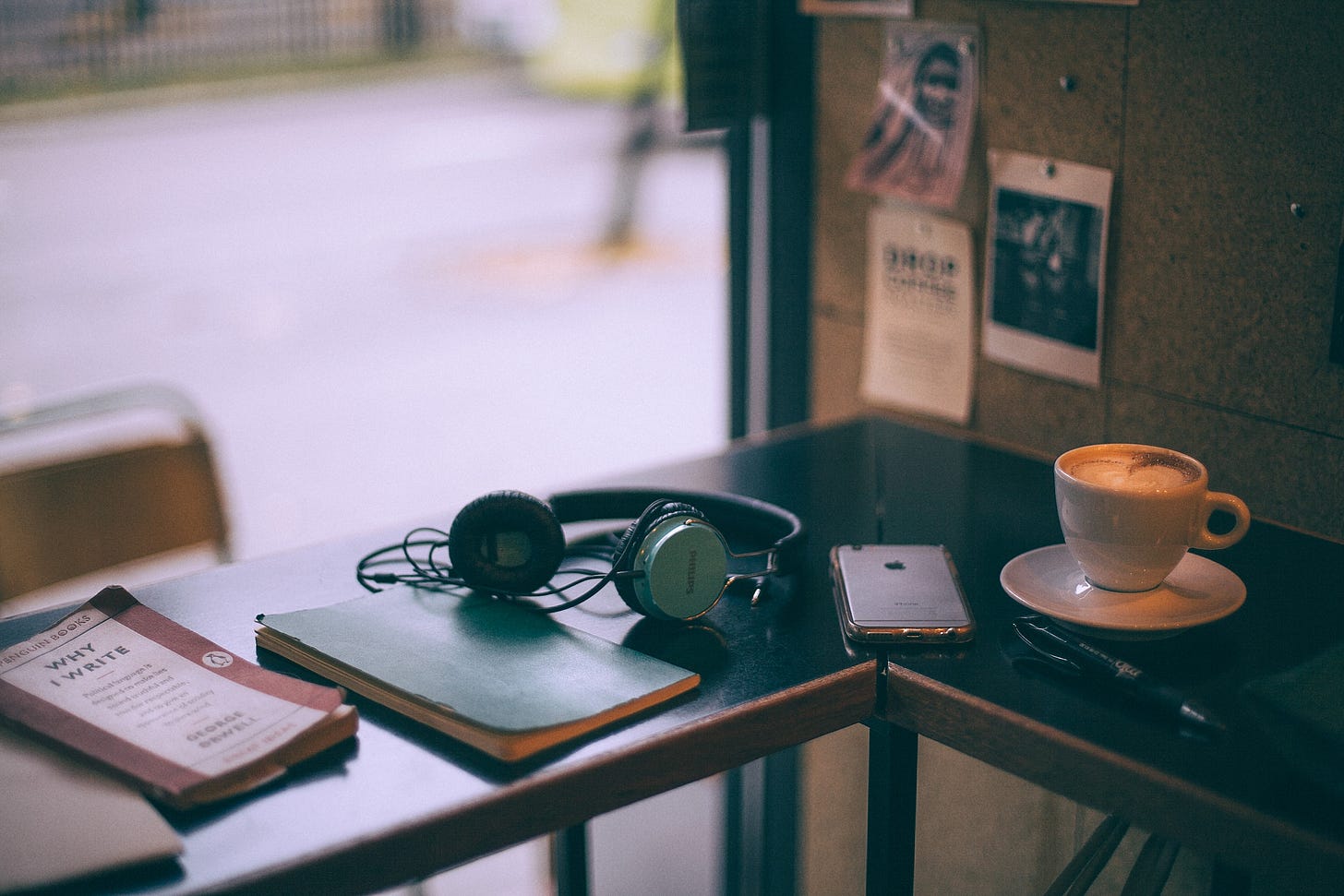Routines Are the Secret to Freedom
How the Right Daily Habits Can Free Your Mind for Bigger Things
I'm Manuel Saez, I write to help founders master emotional intelligence to make decisions with clarity and confidence 🌻 EQ coach, 2X-founder & award-winning designer ➜ I love fixing old motorcycles 🛵 🏍
Reading time: 9 min.
Contents:
Routines, Resistance, and Reframing
Building Mental Clarity and Reducing Stress
Routines as Systems for Mastery
Creating Room for Creativity within Structure
Routines as the Foundation for Fulfillment
Growing up, I was not too fond of routines. To me, routines represented the kind of unexciting, repetitive life I didn’t want.
I watched my dad do the same things day after day, week after week, never deviating from his schedule. He seemed locked in, fixed in his ways as if each action were on autopilot. He was so predictable, and I used to make fun of him for this.
To a younger me, this was the opposite of freedom. I saw routines as cages that kept people from exploring, growing, and experiencing life with fresh eyes.
But life has a funny way of changing your perspective. Now, with the benefit of a few decades and a few lessons learned, I see routines differently.
They aren’t restrictions—they’re the quiet framework that allows me to focus on what matters, free from the noise of endless decisions.
A good routine keeps me grounded and clears the mental clutter so I can direct my energy toward what’s meaningful.
Routines, Resistance, and Reframing
Like a lot of people, I resisted routines because I thought they would limit my spontaneity.
When we’re young, routines often seem like something you settle into once you’ve run out of options. They feel monotonous, like watching the same movie every day.
But I learned that this initial resistance to routines often stems from a misunderstanding.
We tend to see routines as a lack of freedom when, in reality, they’re tools that can help us unlock creativity and purpose. I’ve found that routines create structure, which frees up mental space and energy for the things that matter.
Instead of being trapped in constant decision-making or overwhelmed by choices, routines act as the rails that keep the train moving forward.
This “reframing” of routines—from restrictions to tools—has been one of the most significant shifts in my life.
I see them now as my own set of building blocks, flexible enough to adapt but solid enough to keep me anchored.
Building Mental Clarity and Reducing Stress
Routines provide more than just structure; they also bring a sense of calm and mental clarity.
For instance, I noticed that when I establish a morning routine—something simple like coffee and a couple of hours of writing—I start my day feeling grounded and ready.
This routine saves me from having to think through each step, leaving me with more energy to spend on creative work.
Research supports the idea that routines help reduce mental stress by freeing us from overthinking. By eliminating some of the daily decisions, routines allow us to conserve our mental bandwidth for higher-value tasks. Studies have shown that routines are linked to better mental health, reducing anxiety, and even improving mood.
When we have a rhythm to our day, our minds find a sense of ease. It’s like walking a well-worn path in a forest; you don’t have to think about each step, and you can let your mind wander, taking in the scenery instead of focusing on where to place each foot.
Routines as Systems for Mastery
Routines are like a framework, a system that holds everything together, so I can push my skills that extra five percent toward excellence.
One of the most important lessons I learned about routines came from my first job in the U.S., working in a kitchen.
In a busy kitchen, processes, and repetition are crucial. Each task—chopping vegetables, prepping ingredients, cleaning—has a specific order, and following it saves time, reduces errors, and improves results.
That job taught me to see routines not as “boring tasks” but as tools for building skills and reducing mistakes. With time, I learned that routines are the foundation of mastery.
In the same way, every new skill I’ve picked up over the years—from coaching to designing products—has involved routines.
I separate all the steps, gain a deep understanding of each individually, and then assemble them in the most efficient way. Once I have the routine, I repeat tasks until they become second nature, which frees up my mind to focus on refining those skills.
This consistency builds proficiency and allows me to improve, even if just a little bit each day.
Creating Room for Creativity within Structure
There’s a quiet beauty in the rhythm and repetition of nature. The cycles of seasons, the symmetry in leaves and flowers—all of it reflects a natural routine.
To me, these patterns are a reminder of the power of structure. And contrary to the belief that routines stifle creativity, I’ve found that having a solid structure actually gives me more mental freedom to innovate, free from the exhaustion of constant decisions.
My morning coffee and writing routine, for instance, is a small ritual that sets a steady pace for my day, creating a mental space where ideas can emerge more freely.
Here’s the paradox: routines create stability that actually fuels exploration.
Psychologically, routines offer us a sense of control, which is crucial for mental well-being. Studies show that having routines helps to ground us and reduces anxiety by providing predictable patterns.
This framework becomes the launchpad for creativity. I know my essential tasks are covered, leaving space to think, create, and explore new ideas freely.
A routine doesn’t limit spontaneity; it enhances it by ensuring by giving you the space to dive deeper into those inspired moments.
Routines as the Foundation for Fulfillment
When I was younger, I saw routines as the opposite of freedom. I thought they were for people who had settled and run out of things to try.
Now, I understand that routines are the backbone of a fulfilling life. They free our minds from the mundane so we can invest energy into what matters most. Routines don’t take away freedom—they amplify it by creating mental space and stability.
Routines aren’t about confinement but about setting yourself up for growth. They help me stay consistent, push my limits, and focus on what truly matters.
So, if you’re a founder looking to find some balance or a creative seeking more focus, consider crafting routines that work for you. They might be the hidden framework you need to pursue what really makes life meaningful.
Thanks for reading. Please bookmark this article and share it with friends who may benefit from it.
Sending you good vibes 🌻
Manuel Saez





